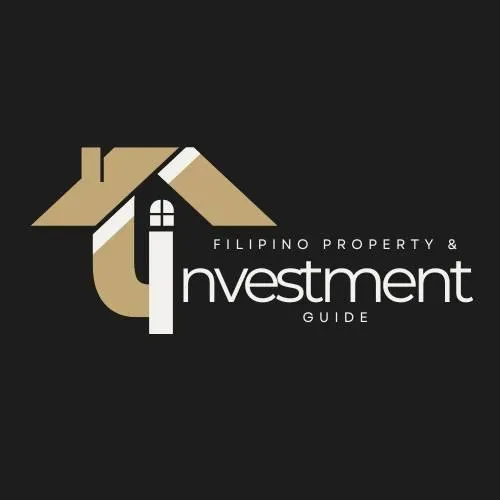Learn With Us
Want to expand your real estate knowledge?
Our team is here to help you learn every step of the way. Whether you're new to the market or looking to sharpen your skills, we offer insights, tips, and guidance tailored to your needs. Reach out to us and start your journey to becoming a more confident and informed real estate decision-maker.
RFO vs Pre-Selling: Which One Is Right for You?
So, Which One is Right for You?
It all comes down to your needs and priorities:
Choose RFO if:
You need a home or rental property immediately.
You want to see the finished unit before committing.
You're willing to pay more for convenience.
Choose Pre-Selling if:
You're investing long-term or planning ahead.
You want to take advantage of lower prices and flexible payment terms.
You're okay with waiting for turnover.
Pag-IBIG vs. Bank Financing: What’s Better For You?
So, Which One is Right for You?
It all comes down to your needs and priorities:
Why Choose Pag-IBIG Financing?
Pag-IBIG is a great option for first-time homebuyers or those with modest income. It offers lower interest rates, longer payment terms, and more lenient requirements, making it ideal for locally employed individuals, OFWs, and self-employed workers. If you're a Pag-IBIG member and looking for a more affordable path to homeownership, this government-backed option provides long-term stability and peace of mind.
Why Choose Bank Financing?
Bank financing, on the other hand, is a solid choice if you’re looking for faster approval and access to larger loan amounts. It’s best suited for borrowers with good credit standing and stable income. Banks also offer more flexibility in terms of loan structures and payment options, allowing you to customize your financing based on your needs and financial capacity.
What Makes a Good Property Location: Checklist Before You Reserve
🏡 What Makes a Good Property Location?
Checklist Before You Reserve!
📍 1. Accessibility
Is it easy to reach via public transport or main roads? Proximity to work, schools, and hospitals adds major value.
🛒 2. Nearby Essentials
Check if groceries, pharmacies, markets, banks, and other day-to-day needs are within reach.
👮 3. Safety & Security
Research crime rates in the area. A secure neighborhood or a gated community with 24/7 security is a huge plus.
🌳 4. Environment & Cleanliness
Look for clean surroundings, fresh air, and a flood-free zone. A peaceful, well-maintained environment promotes better living.
📈 5. Future Development Plans
Is the area growing? Upcoming malls, transport lines, or business districts can increase property value over time.
🏠 6. Neighborhood Vibe
Is it family-friendly? Quiet? Energetic? Visit at different times to get a feel of the community.
📊 7. Resale or Rental Potential
Even if you plan to live there long-term, choosing a location with strong rental or resale potential is a smart investment.
Is Real Estate Better Than Renting or Investing in Business?
Here are some details to consider on what to do on your Real Estate
Cons of Renting:
Monthly rent payments do not build equity or ownership.
Rent may increase over time, especially in high-demand areas.
Limited control over the space—you may not be allowed to renovate or make changes.
Cons of Investing in a Business:
High risk of loss, especially if the business fails or faces unexpected challenges.
Requires time, focus, and expertise to manage and grow.
Income isn’t guaranteed and can be unstable during early stages.
Common Mistakes First-Time Home Buyers Make in Real Estate — and How to Avoid Them
Buying Your First Home? Don’t Fall for These Common Pitfalls
First-time home buyers often make the mistake of skipping loan pre-approval, which can lead to choosing homes outside their actual budget.
Many also focus solely on the property without considering the location, forget to factor in hidden costs like taxes and maintenance, and rush into decisions without proper guidance.
To avoid these, take time to research, plan your finances well, and seek help from trusted real estate professionals. Being informed is the first step to a smart and confident home purchase.
FAQS
Frequently Asked Questions
How do I start the home-buying process?
Starting with a consultation, we’ll help you determine your budget, needs, and preferred locations to find the perfect property.
What documents do I need to sell?
You’ll need proof of ownership, property details, and any necessary repairs or improvements documentation. Our team will guide you through the rest.
How do you determine the value?
We conduct a detailed market analysis, considering factors like location, property condition, and comparable sales in your area to provide an accurate valuation.
How long does it take to buy or sell a property?
The timeline varies, but on average, it can take 30-60 days to complete the process, depending on the market conditions and type of transaction.
Do I need a real estate agent?
While it’s not required, a real estate agent provides valuable expertise, saves time, and ensures you get the best deal, whether you’re buying or selling.
Can I get financing for my property purchase?
Yes! We work with trusted lenders who can help you secure the best financing options for your property purchase.
What should I look for when buying a home?
Focus on location, condition, price, and long-term value. Our experts can help you assess properties to find the best fit for your needs.
What are the costs involved in selling my property?
Selling costs include agent commissions, closing costs, and potential repairs or upgrades. We’ll guide you through all fees to ensure transparency.

We are dedicated to helping you navigate the property market with ease. Whether you're buying, selling, or investing, our expert team offers personalized services.
About
Community
Forum
Online Chat
Social media
Support
Support
Social media
What's App
© 2026 Filipino Property & Investment Guide - All Rights Reserved.